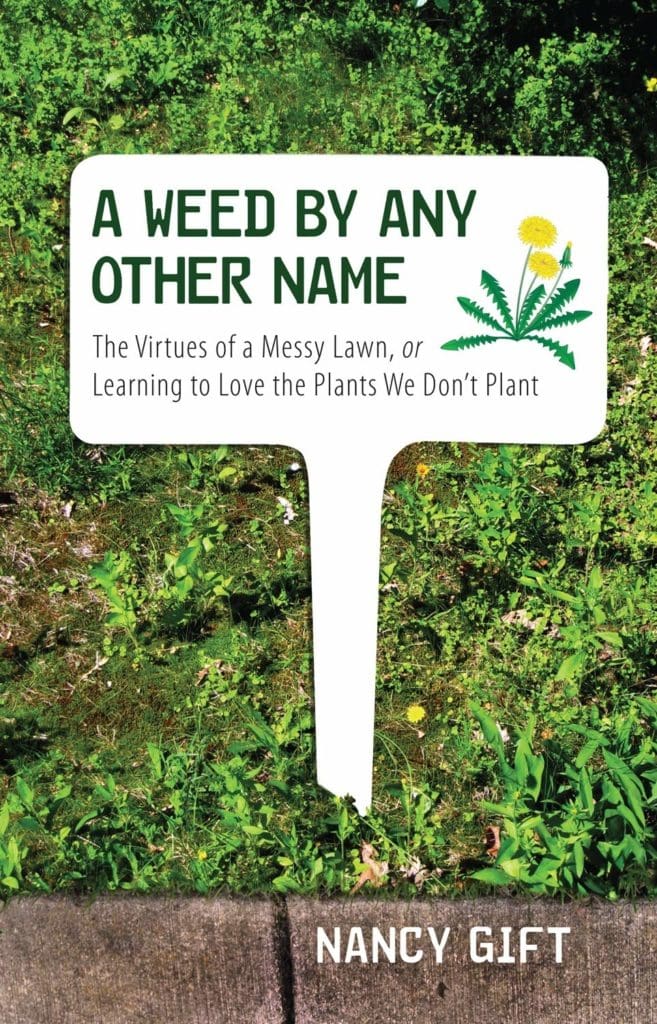
I love the name of this book: A Weed By Any Other Name; The Virtues of a Messy Lawn, or Learning to Love the Plants We Don’t Plant. The whole title seems to embrace the imperfections we find in our yards this time of year and all through the summer. We set out to plant beautiful bulbs, trees, bushes, and more to make our yards beautiful and with that come the weeds. Those plants that we don’t plant, but are there and often everywhere. Glaringly in our face, making us realize that gardens and yards, like life, are imperfect.
If you are looking for a book on weed ecology or a scientific books on where they come from, how to care for them, and more, this is NOT the book for you. Instead, this book is about the author’s journey in her own backyard as both a suburban mother and a weed ecologist as she discovers weeds and how she interacts with them.
How do you interact with the weeds that pop up on your yard each year? Do you take pleasure in pulling them each day? Would you rather spray them with chemicals to kill them? Or do you tolerate them and take a natural approach, welcoming them in to your yard alongside all of your other plantings?
My guess is how we tolerate and interact with the weeds in our yards reflects how we interact with the imperfections in our lives. For me, I don’t see many weeds in my yard, more due to the fact that there is very little grass and more mulch on the slopes, but I do buy Petunias each year and love to spend my morning time picking off the dead heads of these flowers each day. This obviously says something about me and my personality. However, the flowers really seem to appreciate it by growing in even fuller each day. Flowers love being tended to!
A gardening book that pays attention to the weeds is admirable. The author, Nancy Gift, shares her own little stories in an inviting narrative on how her life is weaved with imperfection — yes, it extends beyond her yard. Her ability to be curious about the “weeds” is an admirable quality. How we understand the weeds and grow tolerance for them is a good sign.
What do you do with the weeds you find — in your yard and in your life?
